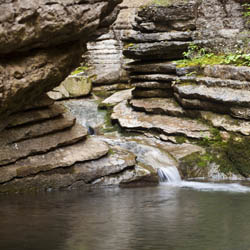A boost for geology in southern Europe
Growing and improving the European Research Area (ERA) is best achieved by identifying and supporting key research centres in peripheral regions. This is done through improving infrastructure at institutions and by establishing strategic partnerships with centres of excellence. RESTCA-TERCE-NIPMSS was an EU-funded project established to develop the infrastructure and expertise of geological research centres at the University of Belgrade's Faculty of Mining and Geology (UB-FMG, Serbia) and at the Geological Survey of Slovenia (GeoZS). This was done in partnership with the Institute of Geoscience at Germany's Goethe University Frankfurt (GUF). The project improved facilities and technical knowledge in the field of industrial pollution at UB-FMG and GeoZS. It also enabled the expansion of the quality and quantity of research outputs at these institutions. At UB-FMG, improvements included a new electron microscope and other tools for analysing pollutants, as well as an upgrade of other existing laboratory infrastructure. Another major outcome of the project was the establishment of these institutes as regional centres of knowledge. This was achieved through several workshops and short courses, and through collaboration with GUF. These activities brought together experts from nine surrounding countries. Geological research in southern Europe has been hindered for years by a lack of capacity, but the RESTCA-TERCE-NIPMSS project has certainly helped reverse the situation.



